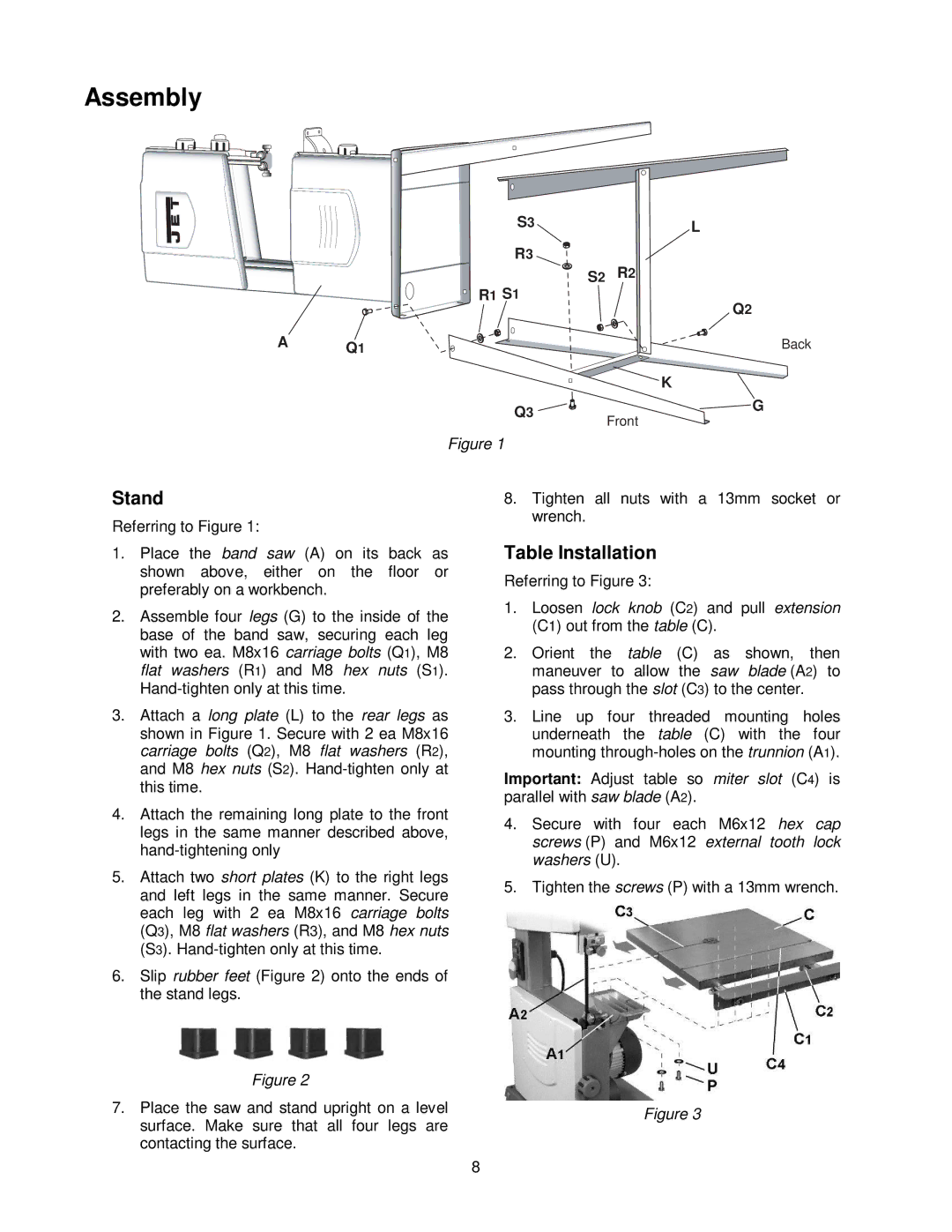
Assembly
| S3 | L |
| R3 | R2 |
| S2 | |
| R1 S1 | Q2 |
|
| |
A | Q1 | Back |
|
| |
|
| K |
| Q3 | G |
| Front | |
|
|
Figure 1
Stand
Referring to Figure 1:
1.Place the band saw (A) on its back as shown above, either on the floor or preferably on a workbench.
2.Assemble four legs (G) to the inside of the base of the band saw, securing each leg with two ea. M8x16 carriage bolts (Q1), M8 flat washers (R1) and M8 hex nuts (S1).
3.Attach a long plate (L) to the rear legs as shown in Figure 1. Secure with 2 ea M8x16 carriage bolts (Q2), M8 flat washers (R2), and M8 hex nuts (S2).
4.Attach the remaining long plate to the front legs in the same manner described above,
5.Attach two short plates (K) to the right legs and left legs in the same manner. Secure each leg with 2 ea M8x16 carriage bolts (Q3), M8 flat washers (R3), and M8 hex nuts (S3).
6.Slip rubber feet (Figure 2) onto the ends of the stand legs.
8.Tighten all nuts with a 13mm socket or wrench.
Table Installation
Referring to Figure 3:
1.Loosen lock knob (C2) and pull extension (C1) out from the table (C).
2.Orient the table (C) as shown, then maneuver to allow the saw blade (A2) to pass through the slot (C3) to the center.
3.Line up four threaded mounting holes underneath the table (C) with the four mounting
Important: Adjust table so miter slot (C4) is parallel with saw blade (A2).
4.Secure with four each M6x12 hex cap screws (P) and M6x12 external tooth lock washers (U).
5.Tighten the screws (P) with a 13mm wrench.
Figure 2
7.Place the saw and stand upright on a level surface. Make sure that all four legs are contacting the surface.
Figure 3
8
